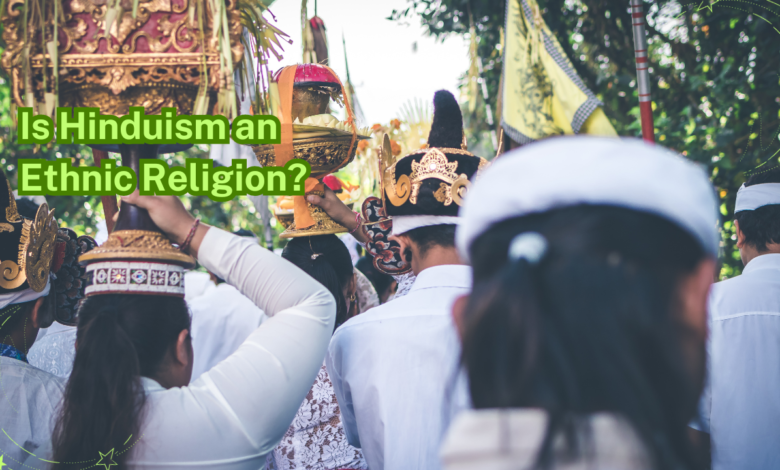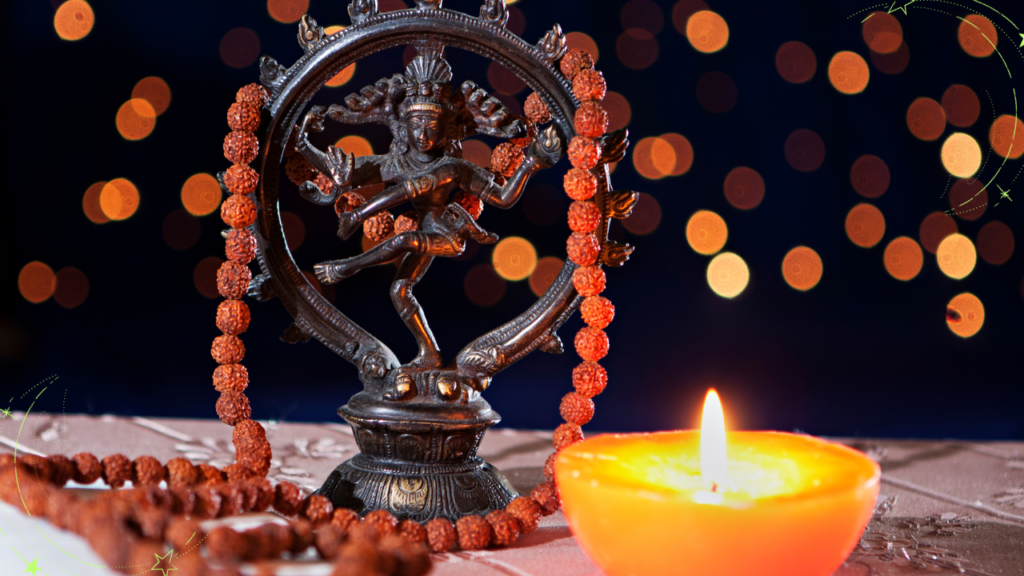Is Hinduism an Ethnic Religion?
Exploring the Boundaries: Is Hinduism Truly an Ethnic Religion?

Is Hinduism an Ethnic Religion?
An ethnic religion is a faith that is closely associated with a specific ethnic or cultural group, often tied to a particular geographic region. It is usually deeply ingrained in the culture and heritage of that group and passed down through generations.

Introduction
Hinduism, one of the world’s oldest and most complex belief systems, is often a subject of intrigue and curiosity for people around the world. It is a religion that is deeply rooted in the Indian subcontinent, and its rich history, diverse traditions, and multifaceted philosophies make it a unique and multifarious faith. One of the questions frequently raised is whether Hinduism is an ethnic religion. To answer this question, it’s essential to understand the nature of Hinduism and how it relates to ethnicity.
Ethic Religion
Defining Ethnic Religion Before delving into the classification of Hinduism, it is important to clarify what is meant by an “ethnic religion.” An ethnic religion is typically associated with a specific ethnic or cultural group and is often tied to a particular geographic region. It tends to be ingrained in the culture and heritage of that group and is passed down through generations.
Also check.
- Why is the Cow Sacred in Hinduism?
- What is Samsara in Hinduism?
- What is Quran?
- Where did Islam Originate?
- Where did Islam Originate?
Hinduism’s Geographic Origin
Hinduism’s Geographic Origin Hinduism has its roots in the Indian subcontinent, and it has been the predominant religion of the region for thousands of years. The sacred texts of Hinduism, including the Vedas, Upanishads, Bhagavad Gita, and the epics Ramayana and Mahabharata, have been composed in India. The major pilgrimage sites and temples of Hinduism are primarily located in India, and its rituals and festivals are deeply interwoven with the country’s culture.
In this sense, Hinduism has a strong connection to its geographic origin. However, it’s important to note that while Hinduism has a deep historical and cultural link to India, it is not inherently exclusive to the Indian ethnicity. Hinduism has been adopted by individuals and communities outside of India and is practiced by millions of people worldwide.
Diversity
Diversity Within Hinduism Hinduism is often described as a “family of religions” rather than a single, monolithic faith. It encompasses a wide range of beliefs, practices, and sects, which can vary significantly even within the same geographic region. Hinduism’s diversity is both its strength and its challenge when considering it as an ethnic religion.
There are many sects and schools of thought within Hinduism, including Vaishnavism, Shaivism, Shaktism, and Smartism, each with its own interpretations and practices. Additionally, Hindus can worship various deities, engage in different rituals, and follow distinct philosophical paths, contributing to the religion’s rich tapestry. This diversity makes it challenging to classify Hinduism as an ethnic religion because it is not tied to a single set of beliefs or practices.
Inclusivity of Hinduism One of the unique aspects of Hinduism is its inclusivity. Unlike some religions that require adherence to specific doctrines or rituals, Hinduism allows for a wide range of interpretations and practices. It doesn’t have a centralized religious authority, allowing individuals to explore their spirituality in their own way. As a result, Hinduism has a history of accommodating various beliefs, rituals, and traditions, making it accessible to people of different ethnic backgrounds.
This inclusivity is exemplified by the fact that Hinduism has attracted followers from various parts of the world, and individuals from diverse ethnic backgrounds have embraced its teachings. The philosophy of Hinduism, which includes concepts like karma, dharma, and moksha, can resonate with people from different walks of life.
Conclusion
In conclusion, Hinduism’s classification as an ethnic religion is not straightforward. While it has strong ties to its geographic origin, the Indian subcontinent, and its culture, it is not exclusive to a particular ethnicity. Hinduism’s inclusivity, diversity, and adaptability have allowed it to transcend geographical and ethnic boundaries, making it a complex and multifaceted belief system that embraces people from various backgrounds.
Hinduism’s fluid and inclusive nature sets it apart from many other religions, and it challenges traditional definitions of ethnic religions. Instead, Hinduism stands as a testament to the intricate interplay of culture, spirituality, and identity, and it continues to evolve and shape the lives of millions of individuals around the world, regardless of their ethnicity.

FAQs
What is an ethnic religion?
An ethnic religion is a faith that is closely associated with a specific ethnic or cultural group, often tied to a particular geographic region. It is usually deeply ingrained in the culture and heritage of that group and passed down through generations.
Is Hinduism an ethnic religion?
Hinduism’s classification as an ethnic religion is a matter of debate. While it has strong ties to its geographic origin in the Indian subcontinent, it is not exclusive to a single ethnicity, making it more complex to categorize.
What are the geographic origins of Hinduism?
Hinduism originated in the Indian subcontinent and has been the predominant religion of the region for thousands of years. The majority of its sacred texts, rituals, and temples are found in India.
Does Hinduism have a diverse following?
Yes, Hinduism is incredibly diverse. It encompasses various sects, schools of thought, and practices, allowing for a wide range of interpretations and beliefs even within the same geographic region.
What are some of the major sects within Hinduism?
Hinduism has several major sects, including Vaishnavism (worship of Vishnu), Shaivism (worship of Shiva), Shaktism (worship of the goddess Shakti), and Smartism (which promotes the worship of multiple deities).
Is Hinduism exclusive to the Indian ethnicity?
No, Hinduism is not exclusive to the Indian ethnicity. It has been adopted by people from diverse ethnic backgrounds worldwide. Its inclusivity and adaptability allow individuals of different ethnicities to embrace its teachings.
Does Hinduism have a centralized religious authority?
No, Hinduism lacks a centralized religious authority. It allows individuals to explore their spirituality in their own way, contributing to its inclusivity and diversity.
Can people from different backgrounds practice Hinduism?
Yes, people from various ethnic backgrounds have embraced Hinduism. Its philosophy, which includes concepts like karma, dharma, and moksha, can resonate with people from different walks of life.
How does Hinduism challenge the traditional concept of an ethnic religion?
Hinduism challenges the traditional concept of an ethnic religion due to its inclusivity, diversity, and the fact that it transcends geographical and ethnic boundaries. It is not tied to a single set of beliefs or practices, making it a unique and complex belief system.
Is Hinduism a monolithic religion?
No, Hinduism is not a monolithic religion. It is often described as a “family of religions” due to its diverse beliefs, practices, and sects. This diversity is both a strength and a challenge when classifying it as an ethnic religion.




